How to become a product manager

When reviewing the last year, and asking myself what was the most frequent question that I was asked during this time – there is a clear winner:
“How can I become a product manager?”
Maybe it’s the harsh market conditions of the last year, maybe it’s because product management is becoming more prestigious or maybe it’s because I started focusing my career more on training and mentoring of product managers – but the bottom line is there are a lot of people out there who are looking to become product managers.
In this post I’m going to provide my answer to this question. So let’s dive in.
Is product management for you?
Before delving into my approach on how to become a product manager, it makes sense to pause for a second and ask yourself – why do you want to become a product manager? And does this role fit your character?
After all – as you’ll see shortly – most likely you’ll need to spend some time waiting for the right opportunity before becoming a product manager. Sometimes it could be even more than a year.
So before devoting this time, it’d be wise to ask yourself whether this is what you really want.
Since this is not the topic of this post, I’m not going to delve into whether product management is for you or not. However, I’m not going to leave you empty-handed either. I already covered this topic in a post I wrote a couple of years ago. Here is a link to this post.
And from this point onwards, I will assume that you’ve read it, and you’re still interested in becoming a product manager.
Ok, so here it goes:
How you don’t become a product manager
There are two main venues for becoming a product manager (that we’ll discuss shortly), neither of which involves you sending your CV to companies for entry-level product manager roles.
Yes, that’s the first misconception we need to address – you don’t transition to product management by applying to a job post. For one main reason:
There are almost zero job postings looking for entry level/junior product managers.
Most companies don’t seek junior product managers externally. When trying to understand the rationale behind this we need to remember that there is no official training for product managers (something that I’m trying to change with my own venture). There is no diploma you can hand over and for most of the cases it’s something that you learn ‘on the job’, unlike engineering, marketing, finance, etc..
Because of that, reality shows that almost all entry level product managers were transitioned into this role from one of the other departments. And if that’s the case – there is almost no advantage to bring an outsider.
Additionally, the fact that you spent some time within the company means that you have some familiarity with its products, you already know many of the people and you may have acquired some domain expertise. When it comes to product management – all of those are great advantages to possess.
For these reasons, as the organization expands, and the need for junior product managers arises, most companies would simply look internally for people who seem to have what it takes for product management (and we’ll soon discuss what it means). At least those are people they already know, and it’s better to give them a chance rather than experimenting with an outsider who tells a nice story about himself/herself without any proof.
The two main methods for becoming a product manager
So, let’s talk about the methods you can use to find your first PM role.
The conventional method
This is the method at least 90% of the product managers I know have taken for becoming a product manager, and this is how it goes:
Assuming you embrace my reasoning above that an organization will prefer to grow someone from within to a product management role, your mission becomes to be this person.
Hence, here are the steps you should take:
- Research and find some candidate companies within an area you’re willing to work at. These companies need to be a company with at least 100 employees, but not a big corporation. Additionally, any company on that list needs to be doing well and you can definitely see it growing in the near future. Lastly, you love what each of these companies does, and would love to help it shape its future products.
- Look at their job openings, and find a role your skills match and you’d be willing to do for a period of time. It can be practically any business or engineering role – project management, marketing, sales, development, etc..
- Apply for this job and get it.
- Once you start working in this company – take your job very seriously and be remarkable at what you do. You must build a great reputation for yourself.
- In parallel – start hanging out with the product people. Your goal is that they will know you and will think highly of you. You should show a clear interest in what they do and you can tactically express your interest in being a product manager when an opportunity shows itself (though, be careful not to be too aggressive with that nor too pushy). If you manage to truly connect with one of the PMs (and only if it’s an ‘organic’ friendly connection, and not based on your sole interests) – you can delicately ask if there are any research or other small tasks that you can take on yourself to help this PM. This is a bonus stage, so again, don’t be too pushy about that.
- This is the hardest stage – now it’s time to be patient and wait for the opportunity to show itself. It could happen when the company expands or when one of the PM leaves. If you did a good job in the previous stage – then your name will come up in internal discussions when the company considers candidates. Now, when a senior PM leaves, the company may automatically post a job that looks for a senior PM replacement. Don’t be discouraged by this. You can go to the hiring manager and sniff around, trying to figure out if indeed it requires a few years of experience, or you believe that you can take on it as well. If you believe that you are up to this challenge then very delicately suggest yourself as a candidate. Even if you received a ‘no’ for this role, you still earned a clear awareness of your desire.
- Eventually, if you persist, your reputation is high and the company grows – you’ll nail your first PM role.
Now, it could be that you’re already working in a promising company and you like its products. In that case, of course, you can start from step 5 above, which is about hanging out with the product team and having them get to know you.
So, this is the conventional and most common method of becoming a PM. Let’s talk about the non-conventional method.
The unconventional method
The non-conventional method is all about creating the opportunity rather than waiting for the opportunity to show itself.
It’s not for everyone and definitely not for those with the faint of heart.
I’m talking about the entrepreneurial road, of course.
If you choose this approach it means that you are taking on yourself to identify a market problem and solve it by building a product that addresses it.
It could be a full blown startup, but I wouldn’t recommend this option if your motivation is simply to become a product manager. This is ultra overkill for this goal, as it will keep you occupied for at least 3-4 years (probably more), assuming that your venture will be successful.
Instead, I’d look for a smaller problem, such as a simple mobile app or a website that addresses a very specific, small-scale, problem.
For instance (and this is an example I saw on Youtube) – building a website where you can upload images of flowers and it will tell you what the flower is in each of the images.
It’s cute, but I’m not sure a website for this use case solves a real problem. I’d go with a mobile app, for this specific case, though it’s more complicated, of course.
I know someone who identified an opportunity during war time and offered an online service that calculates expenses & reimburses for military reserve people, who were lost trying to figure out their rights by reading the government official documentation. His online service was used by 95% of the reserve force, following a few months from its release. Very impressive.
Remember that your goal is not to build a profitable business (if it happens, of course, then great!). Rather, your goal is to offer a service or a product that provides value and being used with enough meaningful traction.
Look, today, with GenAI and other online platforms and marketplaces – it’s very feasible for a single person to offer a digital service that will solve a true problem, even without programming knowledge. It drills down mainly to identifying the right opportunities in the market – which is one of the main goals of product managers.
And this is why, if you manage to identify the right opportunity and build the right product for capitalizing on this opportunity, you can justifiably call yourself a product manager.
I’d definitely hire you in a second (if I was looking for product managers). I said so in the past and I’ll repeat it again – I think the best product managers are those with entrepreneurial experience, because such an experience forces you to think out of the box, consistently look for market opportunities and face the mirror at the end of each day as to whether you did a good job.
Summary
I wish I could provide you with a quick & effective approach for becoming a product manager, like I’m doing in my other posts where I cover various product management ‘hacks’ & best practices.
Sadly, with the exception of a few cases, I’m not familiar with a bullet-proof path that will help you nail your first PM position within a few months of deciding to pursue this career.
Therefore, after deciding to pursue this path – there are two main approaches you can take:
To wait for an opportunity or to create one. Choose the path that better fits your character.
Also, if you’d like to dance in both weddings, that could be possible as well:
Prepare yourself to seize an opportunity when it arises (like we discussed), and in the meanwhile, in your spare time, see if you can promote some initiative of your own, that will result in a product or service which provides value to a specific set of people.
Good luck!
